INTRODUCTION
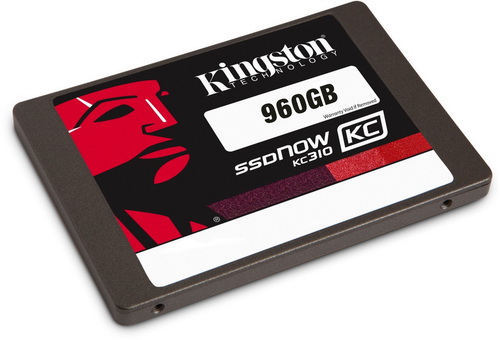
You may not have thought it possible (we did but we didn't expect it to happen for quite some time) but solid state drives (SSDs) are actually gaining ground on regular mechanical hard disk drives so most manufacturers now offer 960GB models at rather affordable prices. The good news however is that there are even 1.6/2/3.2/4TB models currently available (there's even been talk for 6/8TB models) and although their prices are set very high since these are not aimed at regular consumers but rather large enterprises (some 4TB models cost around $30k) this means that eventually such capacities will reach all of us. Today in yet another worldwide first we will be taking a very thorough look at the latest SSDNow KC310 SSD which offers 960GB of space and is the only model in that particular line (at least currently).
Kingston Technology Company, Inc. is the world’s largest independent manufacturer of memory products. Kingston designs, manufactures and distributes memory products for desktops, laptops, servers, printers, and Flash memory products for PDAs, mobile phones, digital cameras, and MP3 players. Through its global network of subsidiaries and affiliates, Kingston has manufacturing facilities in California, Taiwan, China and sales representatives in the United States, Canada, Europe, Russia, Turkey, Ukraine, Australia, New Zealand, India, Taiwan, China, and Latin America.
The SSDNow KC310 features Phison’s PS3110-S10 8-channel NAND flash controller (supports AES 256Bit encryption and TCG) along with 19nm Toshiba MLC NAND flash memory modules and 1024MB DRAM cache by Nanya. It also fully supports power loss protection (firmware based), S.M.A.R.T. drive performance and health monitoring, TRIM function, Advanced Smart ECC and Flash error code correction (the drive can rebuilt data in the event of an unexpected error). According to Kingston the KC310 is primarily aimed for server use and thus aside the MTBF of 1 million hours it can deliver sequential read/write speeds up to 550MB/s-520MB/s, 4K read/write speeds of 99,000IOPS-89,000 IOPS and Random 4K read/write speeds of up to 96,000IOPS-88,000IOPS. Phison may not be at the top of the "food chain" in terms of performance but more and more models make use of it so let's see what it offers this time over inside the brand new SSDNow KC310 960GB SSD.
SPECIFICATIONS AND FEATURES

PACKAGING AND CONTENTS
We received the standalone version of the drive inside a regular package that allows the buyer to check the drive from the front.
A few words about the drive along with warranty and company contact information are the things printed at the rear.
This package contains just the KC310 960GB SSD and a 7mm to 9.5mm spacer.
THE SSDNOW KC310 960GB
The SSDNow KC310 looks a lot like the other SSDNow models so on a large sticker at the top we find its serial number, barcode, electrical specifications, country of assembly, firmware version and several certification and warning logos.
Nothing special on the other side just the same color as the rest of the enclosure.
At the rear we see the typical SATA data and power connectors.
Opening the enclosure is not hard (although i don't like having to remove the top sticker to do so).
There are 4 Toshiba 19nm MLC NAND flash modules on the bottom of the PCB (each is 128GB in size) along with a Nanya 512MB DRAM cache module.
On the other side we find 4 more Toshiba modules, another Nanya DRAM cache module and the Phison PS3110-S10 NAND flash controller.
TEST BED


TESTING METHODOLOGY
After roughly 6 years of testing sold state drives i have concluded that it's almost impossible for any single benchmark suite to accurately measure their performance and that's why in certain benchmark suites we see amazing read/write performance numbers with some drives while in others things are quite different. The reason behind this is that some benchmarking suites are configured to read and write random chunks of data while others read and write constant (sequential) ones. So that's why i always use a very wide selection of benchmarking suites including AIDA64, HD Tach RW, HD Tune Pro, Crystal Disk Mark, Sisoftware Sandra Pro, AS SSD, IOmeter and ATTO. To get the most accurate results each test gets repeated a total of 6 times with the average performance numbers recorded into our charts. Also as of February 25th 2015 our results will also include the Storage Networking Industry Association’s (SNIA) IOMeter tests. These tests include a 12 Hour write test used to “simulate” performance degradation over time and a mixed workload test which basically shows what you can expect when using an SSD continuously for roughly two hours. Unfortunately due to the time required for these tests we repeat them a total of 3 times and not 6 as the above.
Many people have made inquiries about our charts in the past so once again please do keep in mind that the Charts have the average performance numbers of each drive recorded and not the peak (highest) ones. Also although every single one of these programs can help potential buyers choose the right drive for their needs you should also remember that from any kind of benchmark up to real world usage the gap is not small (and usually most differences will go unnoticed by most people). All tests were performed in a fresh Windows 7 Ultimate x64 installation with every update installed up to May 1st 2015.
TEST RESULTS - AIDA64 / ATTO
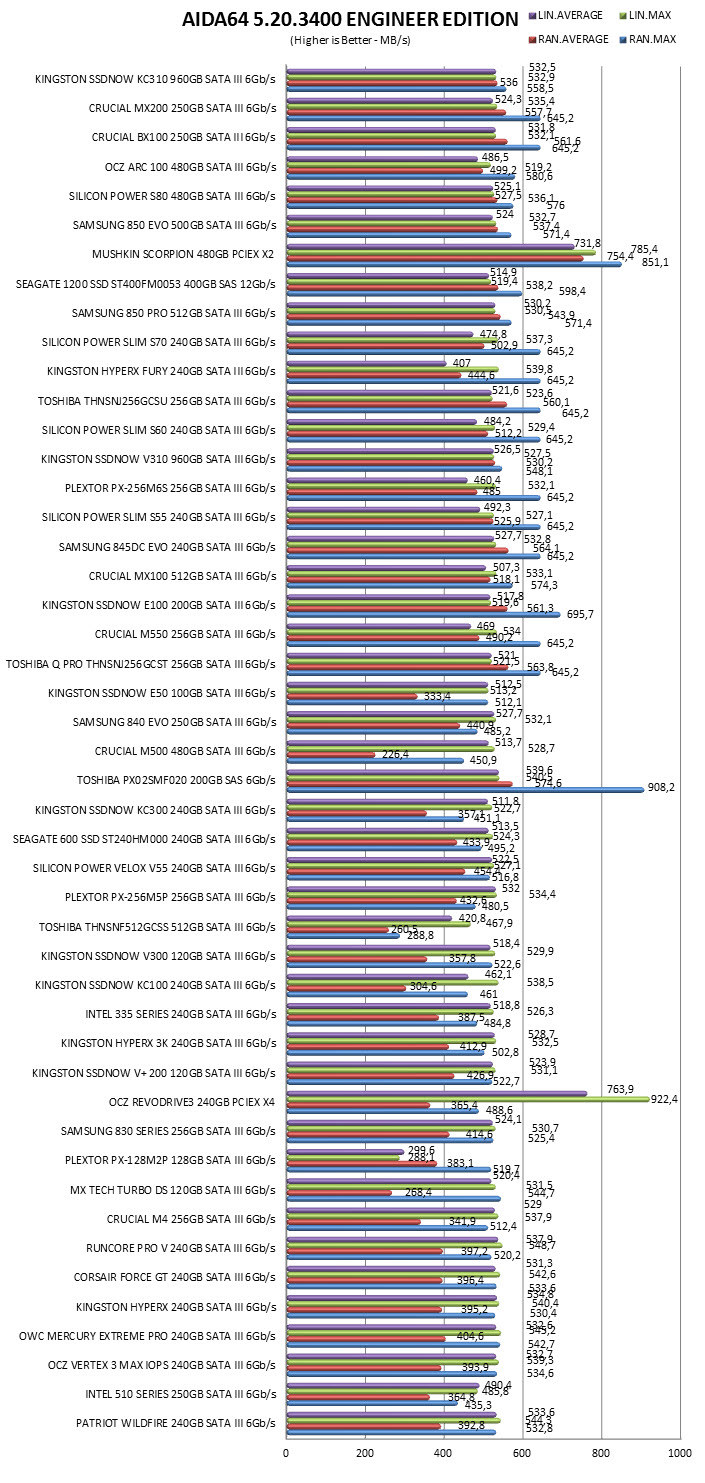

TEST RESULTS - HD TACH RW / HD TUNE PRO


TEST RESULTS - SISOFTWARE SANDRA PRO / CRYSTAL DISK MARK X64
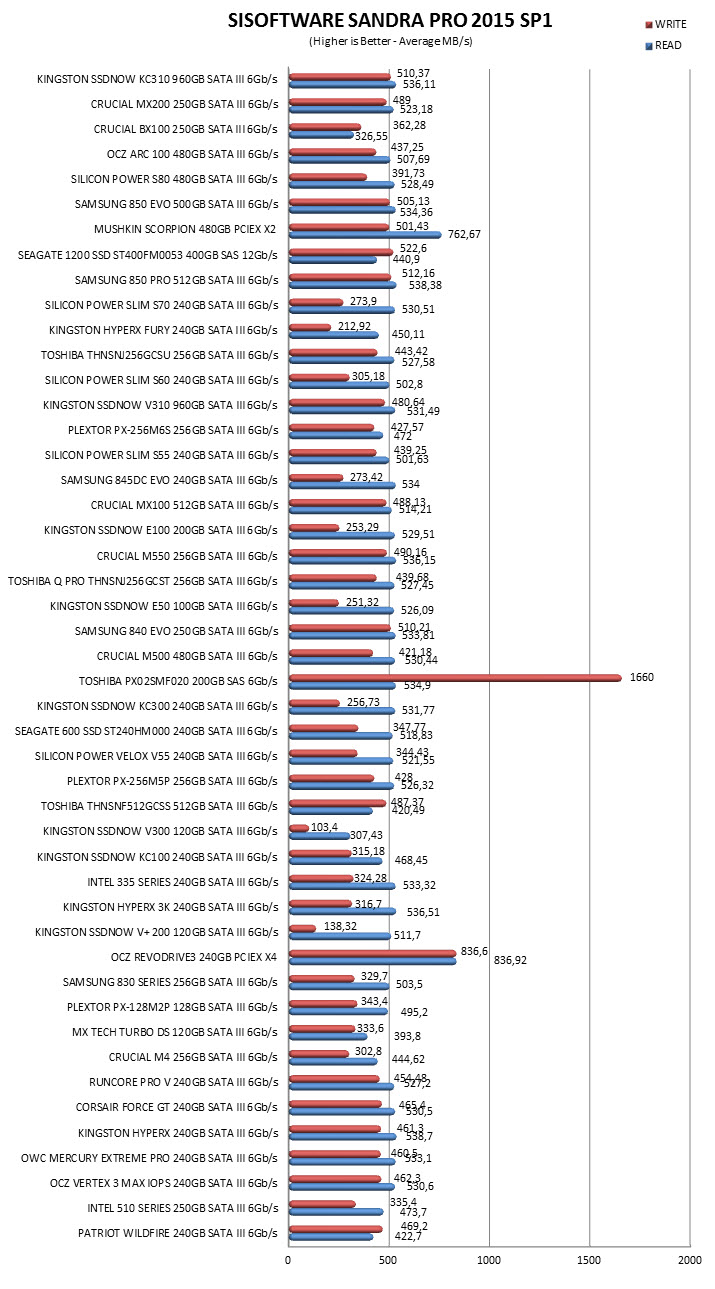

TEST RESULTS – AS SSD / IOMETER


TEST RESULTS – IOMETER SNIA
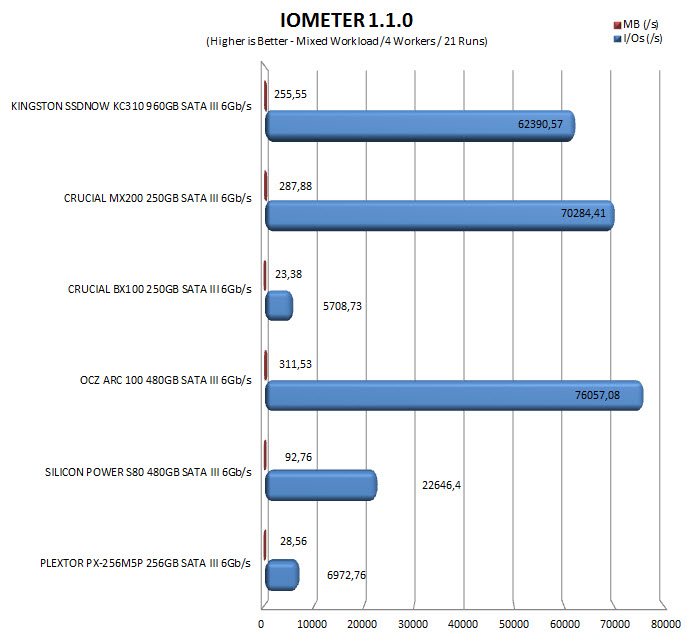
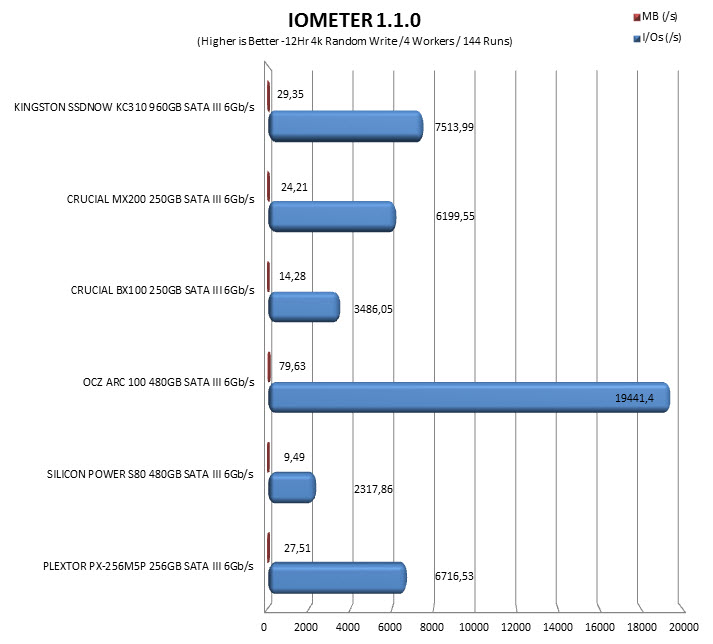
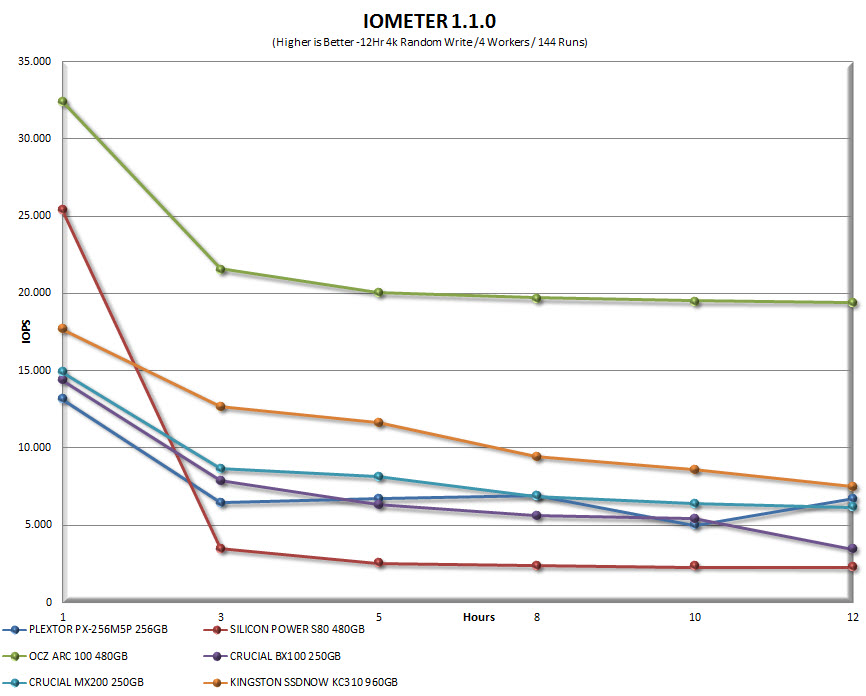
CONCLUSION

The moment Kingston informed us regarding the imminent arrival of the new KC310 960GB SSD a while back their "pitch" didn't focus in the performance segment of the drive but rather its special features that help increase its reliability thus making it ideal for server (heavy workload) use so although it may not be the fastest drive in our charts still it's undoubtedly very fast and even takes the 2nd place in our SNIA IOMeter 12 hour test. Certainly not everyone needs the features offered by the KC310 but if I’ve learned one thing over the years working with SSDs it's that you should always focus in getting a reliable model especially if you can't afford to lose the things you will store in it. The 2nd most important feature of the KC310 is its capacity so since Kingston currently offers a 960GB variant it should do very well in terms of price so let's check it out.
As i type these lines the SSDNow KC310 960GB SSD model by Kingston (standalone) retails for USD586.06 inside the USA (Amazon.com) and for 599.62Euros inside the EU (Amazon.de) a price tag that puts it amongst the most expensive 960GB models in the market currently. Now the good news is that it's still cheaper compared to other enterprise-grade SSD models like the 845DC EVO by Samsung but it's also a lot more expensive compared to consumer oriented models. Of course we always "judge" a product based on its target audience and the KC310 is aimed towards enterprise/server use after all (still we do hope that eventually consumers will be able to afford the same features and reliability). Long story short for server use where reliability, endurance and performance over time are the three most important aspects (aside capacity) the SSDNow KC310 960GB SSD is a natural and that's why it gets our Platinum Award.
 PROS
PROS
- Enterprise-Grade Quality/Endurance
- Very Good Performance
- Constant Performance (SNIA Tests)
- Feature Set
- Massive Capacity (960GB)
- 1.000.000 Hours MTBF
- 3 Year Warranty
CONS
- Price (For Some)

 O-Sense
O-Sense





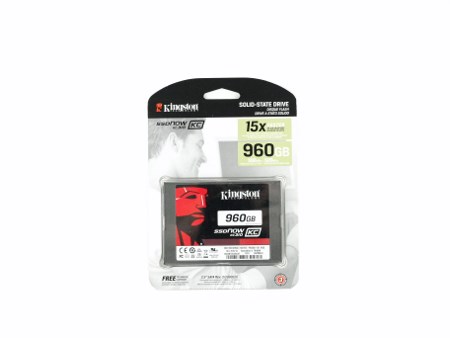
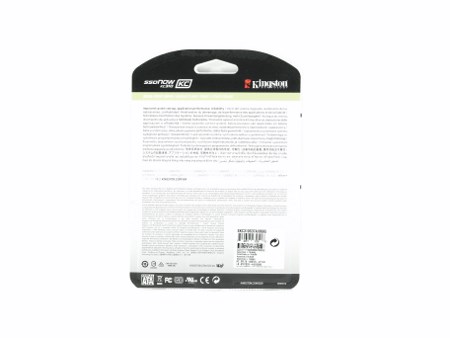
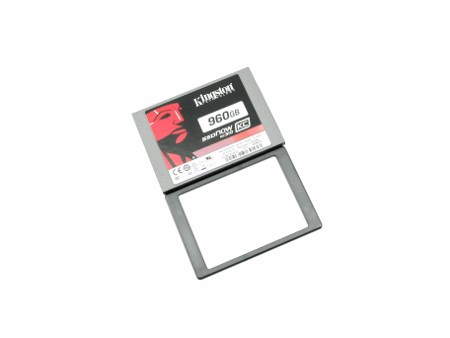











.png)

